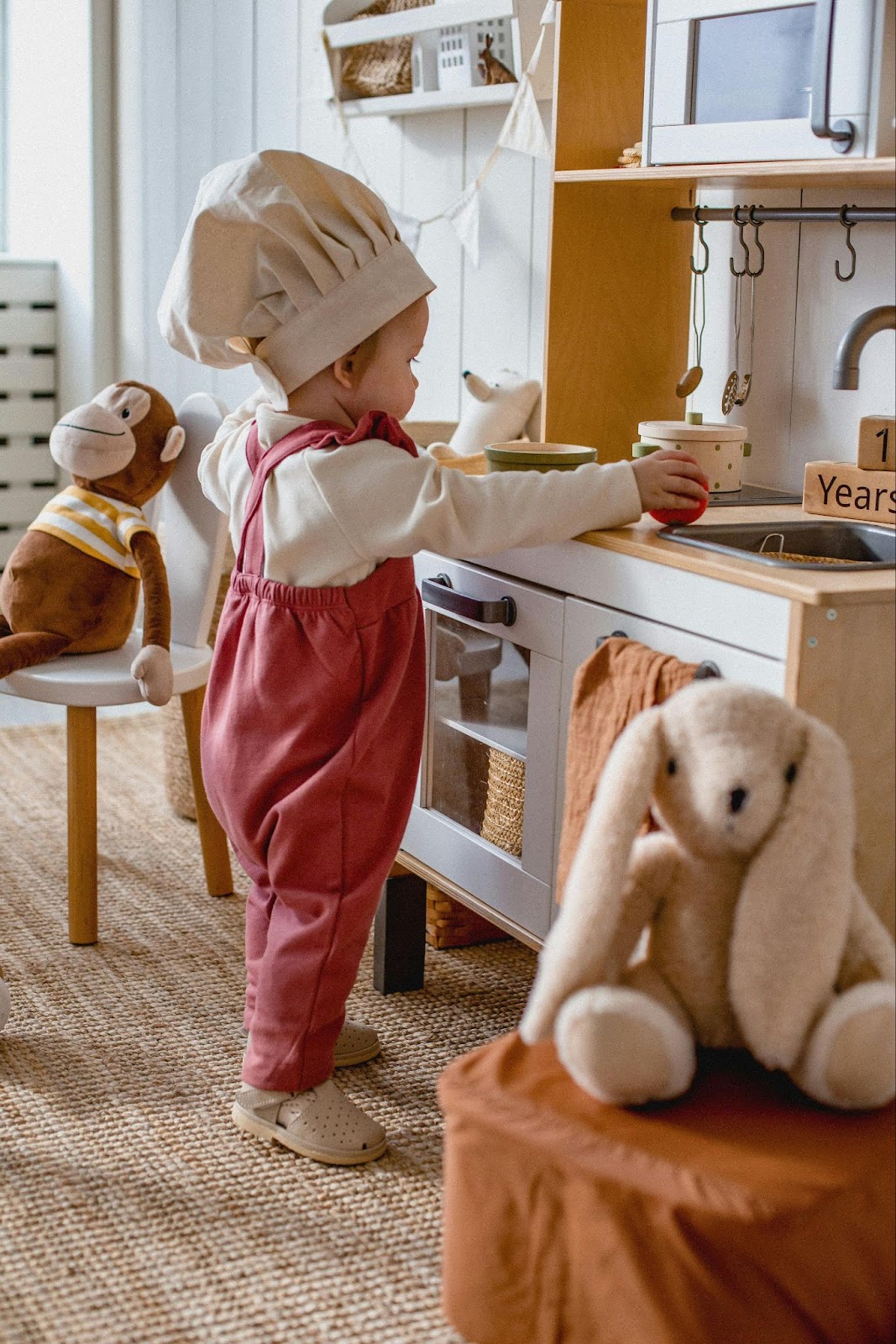Let’s imagine you had your first and second child babbling at about the same time as they were growing. Then they also followed the ‘normal’ speech milestone you are familiar with (according to The American Academy of Pediatrics, one of such normal language indicators/milestones is having your baby be able to string two to three-word sentences together by the end of the second year). There will be no doubt in your mind that your next child will do likewise. But boom! That’s not what happens.
Your toddler isn’t following your textbook and you are beginning to get anxious. You don’t know what to do. The pediatrician is telling you not to worry that your child is only a late talker. But can you help it?
Well, late talking isn’t equivalent to not talking. So, rather than panic. Let me show you the benefits of using baby sign language with your child and how it can empower your toddler.
If You Want to Be 100% Sure Your Child is a Late Talker…
The following are ways to decipher if your child is a late talker or not. You must be very observant as a parent and caregiver to ensure your child’s complete (all-around) development at different times. So, check out these signs:
At Three Months
Your baby should be making cooing signs and smiling.
At Six Months
Your child is babbling and gurgling which is more explorative by nature.
At Twelve Months
Here, your infant is mimicking sounds and comprehending simple instructions
By Month 18
Your child is using about 10 words and can use three of those words to make a simple sentence.
Between Ages 2 to 3
Your child is trying to tell stories and can use about 50 words
Because Baby Sign Language is an opportunity for your child to communicate despite not being able to string words like their peers, it:
Builds Their Social Interaction Capacity
Although they may not talk like their peers, using baby sign language to communicate what they are thinking to others has a way of showing that they don’t have to be excluded from interactions or group activities.
Sometimes, their talking peers learn to interpret the gestures they use. This further helps foster empathy among kids.
Improves Their Language Vocabulary
When your child isn’t talking, baby sign language teaches them the words they should be learning at their given ages. They will learn signs for common words and feelings. You will be surprised to know that your child can learn more than 60 words in baby sign language. According to Kathy in babysignlanguage.com when your child is between ages 0 to 6 months, they can learn 0 to 5 words in baby sign language, 5 to 10 words when they are between ages 6 to 12 months, 10 to 30 words when they are 12 to 18 months, 30 to 60 words when they are 18 to 24 months, and lastly 60 words and more when they are 24 months and above.
If only baby sign language were a person, it would have to be applauded for building late talkers’ vocabulary because once they start talking, they will know just as many words as their peers know.
Adds More Glue to Parent-Child Bond
Rather than fuss over a late talker, parents can utilize the opportunity to create a better bonding experience with their late talker kids. By singing more to them, and reading bedtime stories to them, they can also add to this mix the task of regularly teaching them baby sign language, including it in routine activities. While all of these would have been optional for kids who aren’t late talkers, it is compulsory for late talkers.
Strengthens the Writing and Reading Skills Of the Child
As the visual representation of words is shown to children who learn baby sign language, their phonic/phonemic awareness improves and further enhances their comprehension skills. This foundation leads to the development of their reading skills.
Your child might not be able to talk as fast as you want doesn’t mean they shouldn’t engage in writing and reading activities. When their brains are engaged in learning sign language, their cognitive abilities are strengthened and their critical skills are fine-tuned, all of which increase their chances of reading and writing better, sometimes than their talking peers.
You Should Know:
Some Reasons Why Your Child is a Late Talker
Personality
Some kids naturally prefer to observe and be spectators rather than to be participants. They are reserved by nature and as a result, may take a longer time speaking than their peers. The personality factor isn’t something to be worried about.
Level of Brain Maturity
Some children’s brains and nervous systems due to premature birth may undergo disrupted growth. What this causes is that your child’s speech coordination system is affected likewise the neural pathway responsible for normal speed of language acquisition. You can always learn more about this from a professional.
Hearing Difficulty
If your child’s auditory senses are affected in any way (including early hearing infection), they might struggle with speech because hearing is a critical factor for speaking.
Trauma
A child can experience a certain level of physical (for example, a heavy fall), emotional (for example, living in a drug-abusing family), or psychological trauma (for example, going through a family death) that may cause speech delay.
Language Disorder
It could be receptive language disorder (in which case the child cannot understand and process spoken language), expressive language disorder (leaving a child struggling to form words and express themselves verbally), or an extreme case of mixed receptive expressive language disorder. Whatever it is, from mild to severe cases of any of these disorders, it has the potential of causing, in children, a delay in their ability to talk.
Whatever the reason might be for your child talking late. Don’t take it as a permanent dysfunctionality. Utilize baby sign language today.
Finally,
Children are gifts and each child is a unique gift. Your child’s late talking shouldn’t make you forget that. Seek professional help at every step of your baby’s growth, especially when you notice something out of the ordinary. Late talking is sometimes just a short phase your baby has to go through. You can help them go through it better with baby sign language.
I have some resources to help you on this journey. Find them here.
Thumbnail Photo Credit to: Photo by Kenneth Surillo




